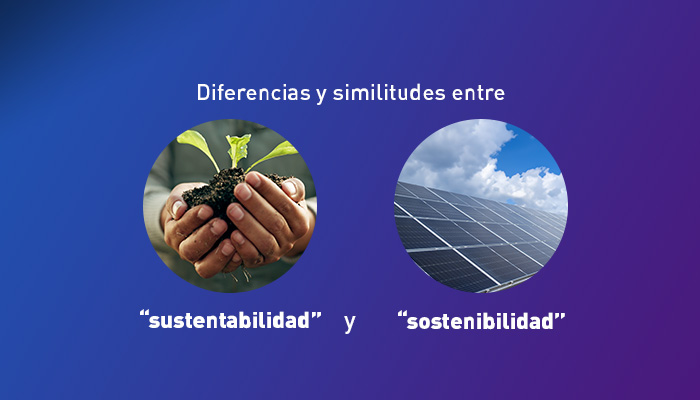Due to the increasing number of phenomena such as climate change and water scarcity, protecting the environment has become one of humanity's goals in recent decades, as we have begun to realize the importance of preserving our planet and its resources.
Today, caring for the planet is highly relevant, and strategies have been developed to reduce our impact on ecosystems. At Bepensa, we are aware of the commitment that comes with working every day for our planet. However, we still have a long way to go.
Education is one of the most effective ways to raise awareness, because by learning how we can positively impact the planet, we can take action. Terms like "sustainability" and "sustainability" are used when talking about environmental issues, but do you really know the meaning and importance of these concepts?
Understanding sustainability and sustainability allows you to better understand the strategies that companies and governments develop to protect the planet, as each of these concepts has a different focus.
Sustainability
In 1987, the report "Our Common Future" was published, and through it, the term "sustainable development" emerged. This refers to the importance of developing our social and economic activities in a balanced manner, in order to ensure the availability of resources for future generations.
Sustainable development integrates three aspects of humanity: the economy, the environment, and society, to improve the quality of life, health, education, and culture, in order to ensure that all people can access a dignified life. Sustainability is the tool we have today to leave future generations a balanced planet and society.
Sustainability
Sustainability is a concept that refers to the use of resources without compromising their future availability through processes that preserve, protect, and conserve them.
A process's sustainability can be determined by analyzing whether its actions mitigate polluting effects, protect the environment, efficiently use natural resources, and integrate technology that increases their productivity.
What's the difference?
It's important to clarify that sustainability and sustainability are two concepts that go hand in hand, as they share the same goal: protecting the planet's resources and the environment. However, the main difference between sustainability and sustainability lies in the comprehensiveness of the former.
Sustainability seeks to generate change in different areas: environmental, social, economic, and cultural. Sustainability, on the other hand, focuses exclusively on the rational use of natural resources.
We can say that something is sustainable when it sustains itself. In the case of the planet, resources would be sustainable if we use them properly.
When we use the term sustainability, we're talking about a broader range of implications, in which different processes enable social progress that fosters a lifestyle of higher quality and greater respect for the earth, future generations, and other living beings.
Sustainability and sustainability Bepensa
At Bepensa, we take sustainable actions to ensure the proper use of resources, conserve water, recycle waste, and protect ecosystems in the communities where we operate. At the same time, we are aligned with the Sustainable Development Goals (SDGs), the UN's 2030 plan that encompasses aspects such as eliminating poverty, providing access to quality education, protecting the environment, and eliminating inequality.



